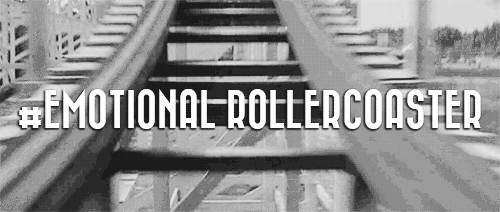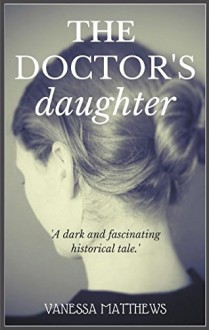The Big Picture - A Camera, A Young Woman, An Uncompromising Ethic, was the first novel I knew I would publish independently.
I wanted to explore a number issues and without the constrains of genre I had no idea where they would take me. I was excited.
I wanted to examine the creative process - and how the art and the artist are influenced by the marketplace.
I wanted to delve into the intensity of family dynamics - how wonderful it is when it works and how damaging it can be when it doesn't.
I wanted complex characters and authentic relationships.
As a journalist, I'd covered stories that couldn't be reported. I knew what was going on but I couldn't get someone to go on (or off) the record to admit it. It's frustrating, but what could you do?
Well, you can use it in fiction. The plot of The Big Picture is comprised of some of those unsubstantiated stories and also my investigation into the influence on our lives of drug money.
To get at my protagonist's inner journey I went deep inside myself, rooted around, and came forth with not so much the truth about a life I've experienced, but one I'd hoped (still hope) to live.
Nigerian writer, Chinua Achebe said, "One of the truest tests of integrity is its blunt refusal to be compromised." I wanted Freyja, my heroine, to be that person. I wanted to see where her blunt refusal to compromise and her intolerant attitude toward those who do would lead her.
Here's what I came up with:
Young, talented, ambitious, Freyja Brynjarrson’s a photographer struggling to crash the art establishment, the challenges presented by her family, and still keep true to her uncompromising ethic.
Fate places her on the front line of a political demonstration where soldiers open fire on civilians. She photographs death for the first time and likes it.
Because of the sensitive nature of her pictures the current government, facing an imminent election, tries to suppress them. But someone far more unscrupulous than government spin-doctors also wants those images destroyed.
Gunnar Brynjarrson, Freyja’s eldest brother is the head of an illegal narcotics empire. He’s concerned about the opposition party’s platform to decriminalize drugs. His sister’s photographs could influence the outcome of a close election and put his business in jeopardy.
As events unfold, Freyja slowly becomes aware of the far-reaching impact the billions of narco dollars have on the government, the economy, friends, family and even herself. Something insidious has infected society and like a super bug it’s resilient, opportunistic and appears as a mutation in the most unexpected places.
Freyja refuses to compromise and is intolerant and unforgiving of those who succumb to this evil or are complicit in their acceptance of it. If she stays at home she’s afraid she’ll be infected and never attain success on her own terms.
She takes an assignment with an international agency photographing the chaos and casualties of Mexico’s drug war. Freyja soon discovers she’s shot only one frame of ‘the big picture’.
The Big Picture focuses on dramatic action, zooms in on political intrigue, and takes a candid snap shot of modern romance. The plot also reveals how narco dollars, overtly and covertly, influence every level of our lives; the wars we fight, the governments we elect, the impact on healthcare, and most importantly and tragically, our personal relationships.
When The Big Picture was finished I set about self-publishing. I used Kindle Direct for the e-book and Createspace for the paperback, both Amazon platforms.
I know a little about publishing having been (and still am) a community newspaper publisher for nearly four decades. Mind you, with the speed technology is evolving past experience doesn't count for much, if anything. In any case, I didn't find the process that difficult. The most difficult part was, and still is, making sure my original manuscript is error free.
I loved this book. I did everything I could to promote it - used social media, sent out advance copies, ran giveaways, sent forth positive thoughts.
I allowed myself to hope. It was a mistake. The Big Picture was self-published without acclaim, reviews or sales. I was disappointed. I felt bad, not so much for myself as for the book. I felt I had let everyone down - meaning my characters.
I regrouped and focused on why I write - because I love to, to learn new things, and to pass my view of the world on to others. Two out of three - not too bad.
Upon reflection I realized The Big Picture had done no worse than the first three books I had published with a publisher. I enjoyed the independence of self-publishing - and the responsibility. So when it became time to renew the contracts with my publisher I said I would if they would publish all the books as paperbacks. We compromised - they published Not Wonder More - Mad Maggie and the Mystery of the Ancients and I yanked the other two books, Spirit Bear and Eagleridge Bluffs.
I subsequently self-published and released Spirit Bear as
Saving Spirit Bear - What Price Success, and Eagleridge Bluffs as Loving the Terrorists - Beyond Eagleridge Bluffs. My re-released books have fared no worse than the one remaining on the publisher's list, all have done terrible.
Next month I'll retain the rights of my last book under contract and I plan to re-release it as a self-published book as well.
The next time I'll talk about , Forest - Love, Loss, Legend, how came out of the residuals of the previous book - war, drugs, and murder combined with my love of the wilderness - it's splendor and it's mystery.


 Log in with Facebook
Log in with Facebook 












